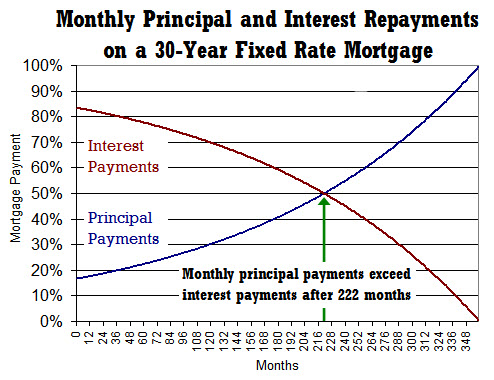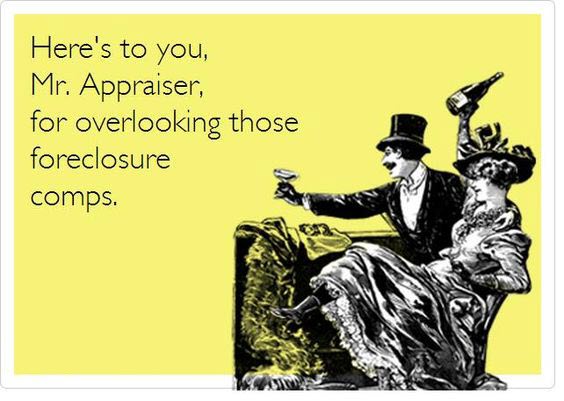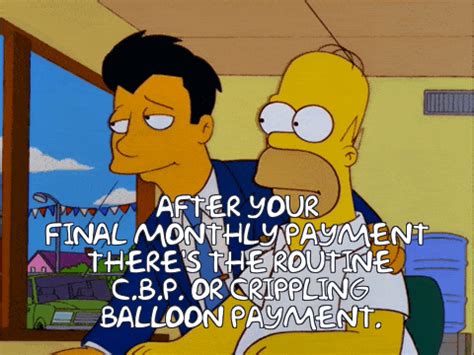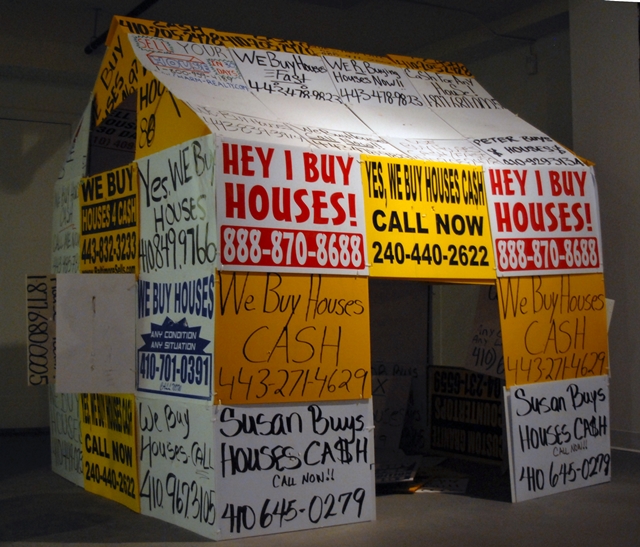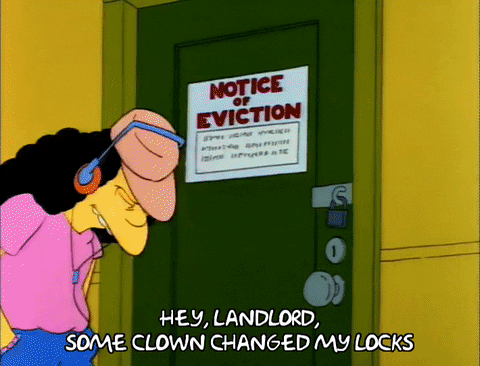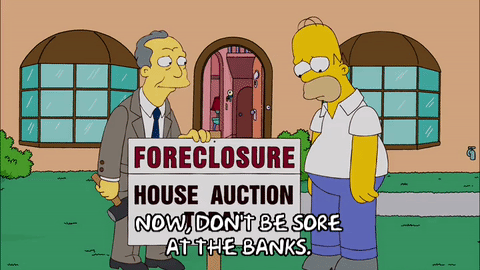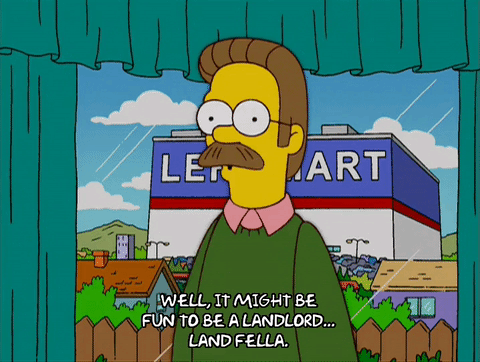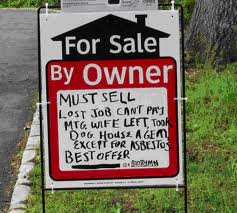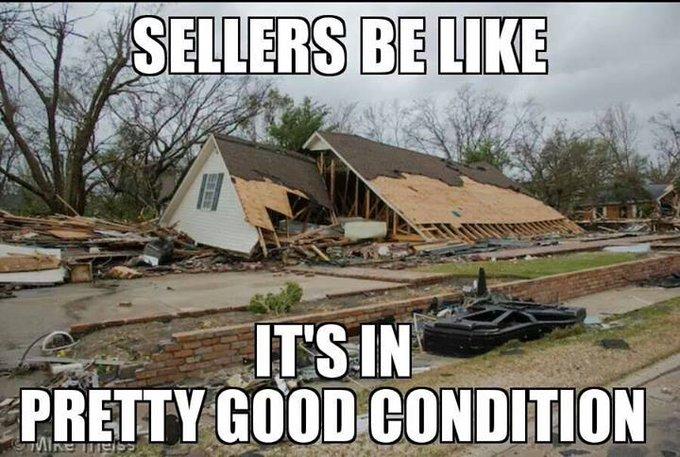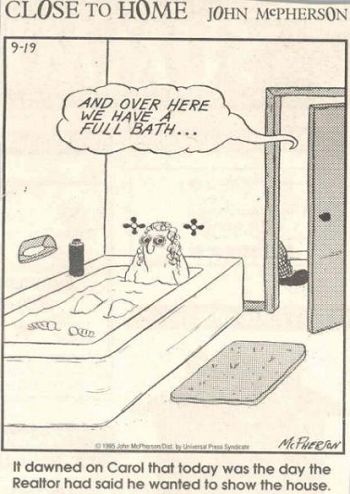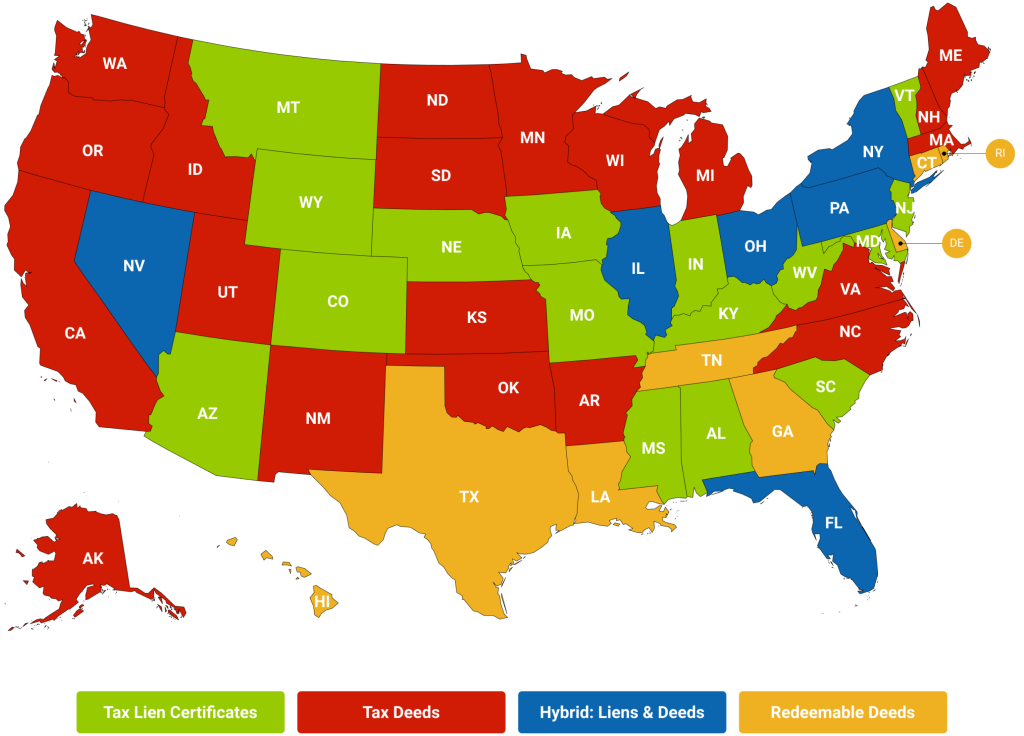Warning: Undefined array key "file" in /home/awesomerei/public_html/wp-content/themes/Divi/core/functions.php on line 1519
Warning: Undefined array key "file" in /home/awesomerei/public_html/wp-content/themes/Divi/core/functions.php on line 1519

Congrats…
 You've found the most complete and colossal glossary of real estate investing terms and phrases in the known universe.
You've found the most complete and colossal glossary of real estate investing terms and phrases in the known universe.
At least we think it is.
I mean, good luck finding an awesomer one, that's all I'm saying.
Looking for REI acronyms?
Trying to decipher things like ROI, MAO, LOI, DOS, LOC and NOD? Then you might find it more awesomely in this blog post…
Looking for a specific term or phrase?
Awesome—use the “Table of Contents” accordions below ⇊ to zero in on your specific word, then you can zip right to it with a click.
Just curious and want to learn some stuff?
That's cool—try just scrolling down the page here (below the TOC) and start filling the knowledge gaps you didn't even know you had. Boom.
Oh, and fair warning:
We've tried to make things a little less boring by sprinkling whimsical little “easter eggs” here and there as you peruse the terms below. Some are kinda funny and some kinda aren't so much. Don't judge us.
Browse: A
Browse: B
Browse: C
- Capital Expenditure (Cap Ex)
- Capital Gains Tax
- Capital Improvement
- Capitalization Rate (Cap Rate)
- Carrying Costs
- Cash Flow
- Cash Offer
- Cash On Cash Return (COCR or CRR)
- Cash Reserves
- Cash-Out Refinance
- Central Air Conditioning
- Certificate of Title
- Certified Commercial Investment Member (CCIM)
- Chain of Title
- Clear Title
- Close in Escrow
- Closing
- Closing Costs
- Closing Fee
- Cloud on Title
- Co-Borrower
- Co-Tenancy Clause
- Code Violations
- Commercial Real Estate (CRE)
- Comparables
- Comparative Market Analysis (CMA)
- Condo
- Consignor
- Consumer Price Index
- Contingencies
- Contingency Clause
- Contract Assignment
- Contract for Deed
- Conventional
- Conventional Mortgage
- Counter Offer
- Covenants, Conditions & Restrictions (CC&R)
Browse: D
- Debt Service Ratio (DSCR)
- Debt-to-Equity Ratio (D/E)
- Debt to Income Ratio
- Debt-to-Income Ratio (DTI)
- Deed
- Deed Book
- Deed in Lieu
- Deed of Trust (DOT)
- Default
- Deficiency Balance
- Delinquent
- Depreciation
- Disclosure
- Distressed Property
- Double Close
- Downturn
- Dual Agency
- Due Diligence
- Due on Sale Clause (DOS)
Browse: E
Browse: F
- Fair Housing Act
- Fair Market Rent (FMR)
- Federal Housing Administration (FHA)
- Fee Simple
- FHA Financing
- FHA Loan
- First Mortgage
- Fix and Flip
- Fixed Price Purchase Option
- Fixed-Rate Loan
- Fixed-Rate Mortgage
- Flipping
- Flood Zone
- For Sale By Owner (FSBO)
- Forced Air Heat
- Forced Equity
- Foreclosure
- Fractional Ownership
- Freddie Mac
Browse: G-H
- Gentrification
- Gift of Equity
- Ginnie Mae (GNMA)
- Graduated Lease
- Gross Operating Income
- Gross Rental Yield
- Gross Rent Multiplier (GRM)
- Gross Scheduled Income (GSI)
- Ground Lease
- Habitable
- Hard Money Lender (HML)
- Hard Money Loan (HML)
- Hazard Insurance
- HELOC
- Hold Harmless Agreement
- Holding Costs
- Home Equity
- Home Equity Loan
- Home Inspection
- Home Warranty
- Homeowners Association (HOA)
- Homeowners Insurance
- Hot Water Heat
- House Hacking
- Housing Starts
- HUD Home
Browse: I-K
- Improvement Location Certificate (ILC)
- Income Producing Assets
- Individual Retirement Account (IRA)
- Industrial Real Estate
- Inflation
- Ingress
- Inspection
- Interest
- Interest Only Loan (I/O)
- Interest Rate
- Interim Interest
- Internal Rate of Return (IRR)
- Intestate
- Joint Tenancy
- Joint Tenants
- Joint Venture (JV)
- Judicial Foreclosure
- Jumbo Loan
Browse: L
- Land Lease
- Land Trust
- Land Value
- Landlord
- Leach Field
- Lead-Based Paint
- Lease
- Lease Option (L/O)
- Leasehold
- Legal Description
- Lender
- Lessee
- Lessor
- Leverage
- Lien
- Lien Waiver
- Line of Credit (LOC)
- List Price
- Listing
- Live-in Flip
- Loan Estimate
- Loan Origination Fee
- Loan Payoff
- Loan Policy
- Loan Term
- Loan-to-Value (LTV)
- Lot
Browse: M-N
- Market Value
- Material Fact
- Maximum Allowable Offer (MAO)
- Mixed Use Real Estate
- Multiple Listing Service (MLS)
- Mortgage
- Mortgage Broker
- Mortgage Insurance Premium
- Motivated Sellers
- Multi-Family
- National Housing Act
- Negative Equity
- Net Operating Income (NOI)
- Net Worth
- New Construction
- No-Appraisal Refinancing
- Non-Judicial Foreclosure
- Note
Browse: O-P
- Open House
- Open Listing
- Origination Fee
- Owner Occupant
- Owner Occupied (OO)
- Patio Home
- Pending Status
- Personal Use Property
- PITI
- Pocket Listing
- Points
- Power of Sale
- Pre-Approval Letter
- Pre-Qualification
- Prepayment Penalty
- Principal
- Private Money
- Private Money Loan
- Private Mortgage Insurance
- Pro-Rated
- Probate Sale
- Proof of Funds
- Property Disclosure
- Property Manager
- Property Taxes
- Planned Unit Development (PUD)
Browse: Q-R
- Quiet Title
- Quitclaim Deed
- Radon
- Real Estate
- Real Estate Agent
- Real Estate Auction
- Real Estate Broker
- Real Estate Owned (REO)
- Realtor
- Recession
- Recording Fees
- Refinance Rate
- Refinancing
- REI
- REIT
- Rent To Own (RTO)
- REO
- Repair Costs
- Reserve Fund
- Residential Real Estate
- Residential Rental Property
- Return on Investment (ROI)
- Reverse Exchange
- Reverse Mortgage
- Rural Housing Service
Browse: S
Browse: T
- Tax Lien
- Tax Exempt
- Tenancy in Common
- Tenant
- Tenant Screening
- Tenants by Entirety
- Tenement
- Tenant Improvements (TI)
- Timeshare
- Title
- Title Commitment
- Title Company
- Title Defect
- Title Insurance
- Title Search
- Townhouse
- Transactional Funding
- Triple Net Lease (NNN)
- Truth in Lending Act (TILA)
- Turn-key Investing
1 Percent Rule
A common rule of thumb for many landlords that the monthly rent earned from an investment property should exceed that property’s monthly mortgage payment.
Another good rule of thumb: it’s opposable. ッ Ba dum chhh…
1031 Exchange
A section of the U.S. Internal Revenue Service Code that lets investors defer capital gains taxes on any exchange of like-kind properties for business or investment purposes.
How many IRS agents does it take to screw in a light bulb? Just one, but it gets really screwed. ッ
2 Percent Rule
A general guideline some investors use to determine if a rental property is a good deal—basically saying that the monthly net rent from a rental property should be 2 percent or more of the cost of a rental property. Also, if you rent to someone named “Lou”, you should definitely call him Loutenant. ッ
50 Percent Rule
The 50 percent rule is a way some landlords use to estimate what the typical expenses will be on rental properties. Basically that the average expenses on a rental property will be 50% of the rents. FYI this rule does not account for any mortgage expenses.
Speaking of expenses, I just put up an electric fence around my property yesterday. Unfortunately my neighbor is dead against it. ッ Ba dum chhh…
70 Percent Rule
A way some property flippers determine what to pay for a fix and flip to make money. The rule states that an investor should pay 70% of the ARV (after repair value) of a property minus the repairs needed.
See also Maximum Allowable Offer (MAO). See also Smirk Dog.
Absentee Landlord
When a landlord owns a rental property, but lives at a considerable distance away from the rental, usually outside of the rental property’s local economic area.
How do absentee landlords die? They cash out. ッ Ba dum chhh…
Abstract of Title
This is the summary that provides details of the title deeds and documents that prove the seller/owner’s right to dispose of the property.
Acre
This is a unit of land area used in the imperial and US customary systems. It is defined as the area of 1 chain by 1 furlong (66 by 660 feet), which is exactly equal to 43,560 square feet. A quarter acre of land may not seem like much to some people, but to me it's a lot. ッ Ba dum chhh…
Adjustable Rate Mortgage (ARM)
A type of mortgage in which the rate of the outstanding balance varies throughout the life of the loan. With an adjustable rate mortgage, it is more difficult for the borrower to predict and plan for monthly payments.
Related: What do you call a woman who sets her adjustable rate mortgage docs on fire? Bernadette. ッ Ba dum chhh…
Adverse Possession
Adverse possession is a legal doctrine that allows a person to claim a property right in land owned by another. Common examples of this are continuous use of a private road or driveway, or agricultural development of an unused parcel of land. By favoring the adverse possessor over the true landowner, this doctrine rewards the productive use of land and punishes landowners who “sleep on their rights.”
After Repair Value (ARV)
An estimate of a property's future after any repairs/renovations that are made to the property. To be clear, this is not the value of the property at purchase, but a projection of future value after repairs/renovations are completed, based on what comparable properties have recently sold for.
Speaking of which, common contractor words of wisdom: If at first you don't succeed, get a bigger hammer.
Amortization
The process of spreading the loan out into a series of fixed payments over a period of time, and a portion of each payment includes both interest and principal payment. Although a purchaser’s total payment remains equal each period, the loan’s interest and principal will be paid off in different amounts each month.
Early in the payment schedule, the majority of each payment goes to interest, and only a small amount goes to reducing the principal balance. The ratio gradually adjusts over time, and at some point transitions to the majority of each payment going to principal and less to interest—until eventually the entire principal is paid off, based on the amortization schedule.
To help clarify this, here's a simple chart outlining a typical 30-year amortization…
Also, here's a simple chart outlining a key aspect of a highly productive morning…
Annual Depreciation Allowance
Annual Depreciation Allowance is the depreciation of an asset and how much an investor is allowed to deduct or write off every year according to tax code—basically the process of deducting costs related to buying and improving a property. So, Instead of one large deduction during the year the property is bought or improved, depreciation deduction is distributed over the “useful life” of a property.
Speaking of “useful life”, here's a useful life-hack: When you're cold, go stand in a corner for a few minutes. It's 90 degrees. ッ Ba dum chhh…
Annual Percentage Rate (APR)
Annual percentage rate is charged to the borrower. It is expressed as a percentage that represents the actual yearly cost of funds over the term of the loan.
Also, a pick-up line worth trying: Hey girl, are you a zero APR loan? Because I don't really understand your terms and you keep saying you have no interest… ッ
Appraisal
An unbiased professional opinion of a home’s value typically required by a lender to determine a property’s value. It's based on a property's condition, comparable listings, and recently sold properties nearby. This process helps validate the agreed upon purchase price between a buyer and seller. Typically happens during escrow or if a person is refinancing their home.
PS, little known fact: The most popular side hustle for appraisers is actually beekeeping—because, you know, value is in the eye of the bee holder. ッ Ba dum chhh…
Appraised Value
The evaluation of a property’s value based on condition, location and similar properties that have sold recently in proximity.
Appreciation
Appreciation is the increase in a home’s value over time. A home’s appreciation can be calculated based on the fair market value of comparable homes in the neighborhood of the property in question. Appreciation of a home can come through the natural appreciation of the value of the home over time or can be forced into the home through upgrades, remodels, or renovations that add value to the home.
As-Is
A property that is stated “as-is” indicates the seller is unwilling to perform repairs. It could also mean the property’s price is “as-is.” This price is usually lower than market prices in the local area.
Asbestos
A natural material made up of tiny fibers that is used as thermal insulation. Inhalation of asbestos fibers can lead to asbestosis and mesothelioma.
Assessed Value
The dollar value assigned to a property by a public assessor to measure applicable property taxes. This is different from an “appraised value”, which is done by an independent appraiser to determine the resale value and takes comparable property sales and inspections of the property into consideration.
A favorite pick-up line for property assessors: Local market values go up and down over the years—but you’ll stay beautiful forever. ッ
Asset Protection
Asset protection is a part of one’s financial planning in order to protect one’s assets from creditor claims. Both individuals and businesses use this technique to make sure they limit creditors access to claim valuable assets.
Why couldn't the snowman spend his money? Cause his assets were frozen. ッ Ba dum chhh…
Assignment
A term used with similar meanings in the law of contracts and in the law of real estate. In both instances, it encompasses the transfer of rights held by one party—the assignor—to another party—the assignee.
Contract assignments are historically a very common way for property wholesalers to earn profits by assigning a purchase contract for a property to another buyer, in exchange for an “assignment fee”, and never actually taking ownership of the property.
Backup Offer
A secondary offer that can be accepted by the seller as a backup, but will not go into effect unless the the current offer is ☹️ rejected, 💀 expires or is 🤐 withdrawn.
Bad Title
A bad title is when the current sellers are not granted the ownership of title due to a multitude of reasons. These can be either legal or financial problems that lead to a bad title and therefore can prevent the seller from being able to sell the asset.
Balloon Mortgage
A balloon mortgage is a fixed rate, typically low payment loan, with a large remainder due at the end of the loan period. Frequently, these loans are re-amortized before the balloon payment comes due.
Bandit Signs
A common name for small signs with marketing messages posted in highly visible, well trafficked areas such as busy intersections or in people's yards. These signs are typically posted by small businesses and local politicians targeting prospects in a given area of traffic. Some real estate investors have historically used bandit signs to advertise “We Buy Houses” messages to attract motivated sellers passing by the spot. The term “bandit” is used because most areas have laws against such signs, and fines/penalties for those who are caught having deployed them.
Bank Owned Property
A bank owned property is one that is taken back into a bank’s inventory after the owner defaults on the mortgage loan. This type of property is likely to be sold at a discounted price or lower than other comparables in the same location.
Bird Dog
A real estate investing term that refers to someone who spends their time trying to locate properties with substantial investment potential. Usually, the intent is to find properties that are distressed and selling at a discount that can be repaired or remodeled and sold for a sizable profit.
Broker
A real estate broker is a real estate agent who passed the broker license exam. The main difference between the two is that a real estate broker can also own a real estate agency or firm. Real estate agents are the ones that work for a real estate broker firm.
Broker Price Opinion
A broker price opinion is a report by a real estate agent or broker that is used to support the professional and unbiased opinion that helps determine the potential selling price. Based on comparable properties nearby that have sold recently, a BPO is used frequently by banks to price their properties for a quick sale.
BRRRR
The BRRRR strategy was coined by Brandon Turner and stands for Buy, Rehab, Rent, Refinance, Repeat. This strategy is where an investor buys a fixer-upper property using short-term funds (oftentimes cash, hard money, private money, or other creative means), fixes up the property, rents out the newly renovated property, and seeks a new long-term loan (a refinance) to pay off the old short-term loan. This refinance will free up the short-term capital that was used, allowing the investor to repeat the process again and again.
For more information, check out the book “Buy, Rehab, Rent, Refinance, Repeat” by David Greene.
Building Classifications (A,B,C,D)
Building classifications allow an investor to differentiate buildings and rationalize market data. Investment properties and their value falls into four category classifications, A, B, C or D.
Buy and Hold
The buy and hold strategy is long-term investing, where a real estate investor purchases a property with the intention of holding onto and renting it for the foreseeable future.
Buyer’s Agent
A buying agent or a purchasing agent is an agent that works with buyers to find and purchase a property. The buying agent works for a commission that is typically paid by the seller at closing.
Buyers List
Real estate entrepreneurs can strike investment deals more quickly by relying on a buyers list, or a rolodex of investors who are actively looking for investment opportunities. These lists are built via marketing, networking and repeated business.
Capital Expenditure (CapEx)
Capital expenditure or CapEx refers to large expenses that are performed infrequently but should still be budgeted for. Examples include a new roof or systems like a furnace or air conditioning unit.
Speaking of which, did you hear the joke about the roof? I doubt you’d get it, it’s over your head. ッ Ba dum chhh…
Capital Gains Tax
When you sell an asset for more than you paid for it, you trigger what is called a capital gains tax.
Capital Improvement
Capital improvement is the addition of permanent structural changes to a property that add to the property value or adapt the property to new uses.
Capitalization Rate (Cap Rate)
The capitalization rate or cap rate is used in the world of real estate investing to indicate the rate of return that an investor can expect on any given real estate investment property. This is measured by a formula based on the net income that the property is expected to produce and is calculated by dividing net operating income by the property asset value and is expressed as a percentage.
NOI ÷ Property Value = CAP RATE %
This calculation is typically used by real estate investors to understand the potential ROI on an investment property. While it is a useful calculation, this should not be the only deciding factor when considering an investment property. The capitalization rate indicates the property’s intrinsic, natural, and un-leveraged rate of return.
Carrying Costs
When an investor purchases a property to rehab, they must factor carrying costs into their list of expenses. These are the expenses incurred from the time the property is purchased until the time that it is sold, including interest payments, taxes, insurance and utilities.
Cash Flow
Cash flow refers to the net income generated by a rental property, after subtracting the costs of owning and operating the property.
In real estate terms, cash flow is the byproduct of owning a rental property and leasing it to tenants for a monthly rental income. To elaborate on this, real estate investors look for rental properties reaping positive cash flow returns, or, in other words, they invest in positive cash flow properties.
Cash Offer
A potential buyer's purchase price submitted to a seller, usually in writing, in which the buyer omits/excludes any financing contingency due to having immediate access to sufficient capital for the purchase amount offered. This capital typically takes the form of a bank account, a line of credit or something similarly “liquid”. The seller then has the choice to either accept, reject, or make a counter to the offer. No offer is considered binding unless a contract is signed by the buyer(s) and seller(s).
Cash On Cash Return (COCR or CRR)
A cash-on-cash return is a rate of return often used in real estate transactions that calculates the cash income earned on the cash invested in a property.
Cash Reserves
Cash reserves refer to the money an individual has set aside for unexpected expenses like home improvement emergencies, such as plumbing issues, appliance replacements, flooding, etc., as well as vacancies, capital expenditures, and non-paying tenants.
Cash-Out Refinance
A cash-out refinance will replace a person’s existing mortgage with a new home loan for more than is currently owed on a property. The difference is refunded to the property owner in cash and can be spent on home improvements, debt consolidation, or any other financial needs. In order to use a cash-out refinance, a property owner would need to have built up equity in the property.
Central Air Conditioning
Circulate cool air through a system of supply and return ducts.
Certificate of Title
This is the state-issued document that identifies the owner of real property. A certificate of title provides documentary evidence of the right of ownership so that the seller is actually able to transfer title and sell a property.
Certified Commercial Investment Member (CCIM)
A CCIM (Certified Commercial Investment Member) is a recognized expert in the commercial and investment real estate industry. The designation process ensures that CCIMs are proficient not only in theory, but also in practice.
Chain of Title
This is the sequence of historical transfers of a title of real property from sellers to buyers. This is a valuable tool to identify the past owners of any given property. This chain will follow the title from the original owners to the current owners.
Clear Title
A clear title is a title that is clear of any type of lien or anything else that might pose a question about legal ownership. An owner with a clear title has legal ownership of the title and property and is able to transfer this title legally to a purchaser.
Close in Escrow
This means essentially that a real estate transaction has been completed and that the sale is final. An ‘escrow’ is a common feature of standard real estate transactions. They function as an independent third party that holds all monetary funds and documents until the close of the sale.
Closing
A meeting at which a buyer and seller finalize a real estate transaction. Both the buyer and seller are required to fill out legal paperwork to officially transfer ownership of the property in question at the time of closing.
The closing is when the buyer and seller sign the official papers to transfer ownership.
Closing Costs
Expenses over and above the price of the property in a real estate transaction. Costs incurred include loan origination fees, discount points, appraisal fees, title searches, title insurance, surveys, taxes, deed recording fees, and credit report charges.
At the time of closing, a buyer should expect to pay 2-5% of the property’s purchase price to cover various fees, such as excise tax, processing fees, title insurance and the appraisal.
Closing Fee
A fee charged by the Title Company to close a real estate transaction.
Cloud on Title
An issue that might invalidate or make it difficult to transfer a title, and is usually discovered during the title search once a property is under contract. Such issues are typically in the form or a document, claim, unreleased lien, or other “strings attached” that must be resolved in order to restore a clear, transferrable title.
Co-Borrower
A co-borrower is the second person on a mortgage loan. This can be anyone from a parent or friend to a significant other or spouse. Co-borrowers are used to help qualify for a loan and are also equally responsible for the mortgage should the initial borrower default.
Co-Tenancy Clause
A co-tenancy clause in retail lease contracts allows tenants to reduce their rent if key tenants or a certain number of tenants leave the retail space.
Code Violations
Each city, county or state creates or adopts municipal codes. There are codes for building, landscaping, and more. If a property violates these codes it could be in violation, which allows the city to fine the property owner until the violation is fixed. If the property was once in adherence to the codes, but the codes changed a property may be grandfathered in. When a property is grandfathered in, they may not be in violation of codes as long as the use of the property does not change.
Commercial Real Estate (CRE)
A commercial property refers to a real estate property that is used for business purposes or large scale residential dwellings, such as apartment buildings.
Comparables
Investors, agents and lenders alike find it useful to identify comparables, or similar homes in close proximity, to derive a precise value for the property in question. The act of conducting this research is referred to as a comparative market analysis (CMA).
Comparative Market Analysis (CMA)
This is an examination of the prices of different properties within the same area as the property a buyer is considering for purchase. Real estate agents perform this analysis to determine an accurate listing price.
Condo
A condo is like an apartment, but you own the space. A condo may have neighbors above, below, or beside you. The space in the building is owned, but not the land in most cases. Condos will have association dues that cover exterior maintenance, landscaping, and common amenities.
Consignor
If a buyer cannot qualify for a loan, they may be able to use a consignor. If a consignor signs for a loan, they are responsible for that loan and it can count against their debt to income ratio.
Consumer Price Index
The Consumer Price Index indicates how much prices of consumer goods and services have increased over a set period of time.
Contingencies
Conditions that must be met, either by the seller or the buyer, before the purchase of a property can close. Contingencies are intended to protect buyers and sellers, and often include items such as inspections, mortgage approvals and appraisals.
Contingency Clause
A contingency clause is a portion of a contract that will require certain things to take place before the contract can be considered valid. This often is a part of a conditional offer made on a property during a real estate transaction.
Contract Assignment
A wholesaler operates by negotiating below-market-value deals with motivated sellers. They then sell the property contract to an end buyer, such as a rehabber, by using a legal document called a contract assignment.
Contract for Deed
A tool that can allow buyers who either don't qualify for traditional lending options or who want a faster financing option to purchase property.
Conventional Mortgage
A Conventional mortgage is a type of mortgage loan not insured by the Federal Housing Administration (FHA), usually requiring between a 10 percent to 20 percent down payment.
Why was the conventional mortgage so clingy? It hated being a-loan. ッ Ba dum chhh…
Counter Offer
The seller can accept, reject or counter any offer. When they counter an offer, the seller can change the price, dates, contingencies, or many other terms. Any changes the seller wants must be listed in the counter.
Covenants, Conditions & Restrictions (CC&R)
Covenants, Conditions & Restrictions, commonly called CC&Rs, are a set of rules established by a developer or homeowners association that govern residences in a particular neighborhood or condominium. CC&Rs may put restrictions on parking, paint colors, noise-levels and pets, for example.
Debt Service Ratio (DSCR)
The debt service coverage ratio (DSCR), also known as “debt coverage ratio” (DCR), is the ratio of operating income available to debt servicing for interest, principal and lease payments.
Debt-to-Equity Ratio (D/E)
Debt-to-Equity Ratio in real estate, is a measure of ownership. How much of the property an investor owns versus how much is owed on the mortgage.
Debt to Income Ratio (DTI)
This is the ratio a lender looks at when qualifying a buyer. The lender looks at the buyers’ monthly income versus their monthly debts. The ratio allowed varies based on the type of loan the buyers are getting.
Deed
A deed is a legal document that passes and confirms an interest, right, or property and is signed, attested, delivered, and sealed. It is commonly associated with transferring the title of a property from the seller to the buyer.
Deed Book
Deed books can be found at the county courthouse and are under the jurisdiction of the registrar of deeds. The deed book contains the record of property transfers.
Deed in Lieu
A potential option taken by a mortgagor (a borrower) to avoid foreclosure under which the mortgagor deeds the collateral property (the home) back to the mortgagee (the lender) in exchange for the release of all obligations under the mortgage.
Deed of Trust (DOT)
A Deed of Trust is a type of secured real-estate transaction that some states use instead of mortgages. A deed of trust involves three parties: a lender, a borrower, and a trustee. The lender gives the borrower money. In exchange, the borrower gives the lender one or more promissory notes.
Default
Within real estate, default is when a property owner fails to make monthly mortgage payments and therefore defaults on their mortgage loan. When the mortgage payments are not made and a borrower defaults on the loan, the property can then be taken away by the lender through a process called foreclosure.
Deficiency Balance
This is the amount of the loan that remains unpaid after the lender has taken the property back from the owner.
Delinquent
This term is typically used when a borrower is late or overdue on a mortgage payment.
Depreciation
In accounting terms, depreciation describes the decrease of a property’s value over time, attributed in part to wear and tear.
My wife says I'm only really good at 3 things. And that's self depreciation and overestimating the amount of things I'm good at. ッ Ba dum chhh…
Disclosure
What a seller has to tell the buyer of a home. They must disclose any material facts that are known.
Distressed Property
A property becomes distressed when a homeowner defaults on their mortgage payments, is delinquent on paying property taxes, or is condemned due to disrepair.
Double Close
Also referred to as a back-to-back closing, a double closing will witness a wholesaler purchase a property and immediately resell it to an end buyer. A double close is different from an assignment of contract because the wholesaler takes legal possession of the property for a short amount of time.
The simultaneous purchase and sale of a real estate property involving three parties: the original seller, an investor (middleman), and the final buyer. Commonly used by wholesalers.
Downturn
Downturn is when the economy or real estate market has softened, resulting in properties typically taking longer to sell.
Dual Agency
Dual agency is when a real estate agent represents both the buyer and the seller in a single transaction.
Due Diligence
The due diligence period is a time frame allowing a buyer to fully examine a property. This is often done by hiring specific experts to inspect and perform tests. Buyers who may want to renegotiate the contract based on the results.
Due on Sale Clause (DOS)
A due-on-sale clause is a clause in a loan or promissory note that stipulates that the full balance of the loan may be called due (repaid in full) upon sale or transfer of ownership of the property used to secure the note. The lender has the right, but not the obligation, to call the note due in such a circumstance.
Earnest Money
After an offer is accepted, a deposit is made to the seller by the buyer as a symbol of good faith that you will be following through on buying the property. This deposit can be forfeited if the buyer does not follow through on the purchase.
The money needed for a deposit to buy a property. This can be refundable under certain circumstances based on inspection, loan approvals, appraisal, and other contingencies.
Easement
Easement is the legal right to use someone else’s land for a specific and limited purpose. When someone is granted an easement, they are legally allowed to use the property, but the property title and ownership remain in the possession of the owner.
Effective Gross Income
Effective gross income, or EGI, can be calculated by taking the potential gross income from an investment property, adding other forms of income generated by that property, and subtracting vacancy and collection losses.
Egress
When buying a property, there are certain things that qualify a room as “conforming” or “non-comforming.” For example, a basement room with regular windows would be considered a “non-comforming” bedroom. Egress is a way to exit the property, and in order for a room to be a legal bedroom, it must have two points of egress or exit.
Ejectment
This is a common law term for the civil action to recover the possession of a title to the land.
Eminent Domain
Eminent domain refers to the right of the government to take private property and convert it to public use.
Equity
Real estate equity expresses the difference between a property’s current market value, and the outstanding amount on the mortgage. The more a homeowner pays down a mortgage, the lower the outstanding mortgage will be, thus helping to increase their personal equity in a property.
Equity Stripping
This is a set of strategies designed to reduce overall equity in a property. These can be used by debtors as means of making properties unattractive to creditors.
Escrow
A financial account that is funded by a homeowner’s mortgage payments, used to pay for homeowners insurance and property taxes.
Escrow (Held in Escrow)
Funds pertaining to a real estate transaction can be held in Escrow. That means the title company, a real estate office or another party can collect funds and hold them until they are ready to be released. Earnest money, money to repair a house after closing, and much more can be held in escrow.
Escrow (House in Escrow)
Some states call a house “in escrow” when someone has a contract to buy and the price is accepted by the seller. This is similar to a house going “under contract.” Once the buyer and seller have signed a contract on a home, the seller cannot accept another contract from a new buyer (except a backup offer) unless the current contract terminates.
Escrow Agent
An escrow agent is the person that holds property in trust for third parties while a transaction is finalized on the property in question.
Escrow Agreement
This is the contract that defines an arrangement between parties where one party deposits an asset with a third party. This third party then delivers the asset to the second party when the conditions of the contract are met.
Estate
A word with deep legal origins, “estate” has been consistently defined for centuries while adapting to the needs of the times. In essence, one’s estate is everything they own; it’s everything that belongs to a person.
Eviction
The legal method for removing a tenant from a rental property. Eviction typically takes place after the tenant fails to make their monthly rent payments on time.
Exit Strategy
An exit strategy is how an investor plans to cash out on an investment property. This can include strategies such as renting out a buy-and-hold property or selling a rehabbed property.
Fair Housing Act
The Fair Housing Act was initiated to make sure that everyone who applies for housing has the right to be treated the same. For landlords, this means you cannot discriminate against potential tenants based on color, disability, familial status, national origin, race, religion, or sex.
Landlords can be so stuck up sometimes though, right? I mean, they act like they own the place. ッ Ba dum chhh…
Fair Market Rent (FMR)
Fair market rent (FMR) is the monthly rent a particular property type is likely to receive.
Federal Housing Administration (FHA)
The Federal Housing Administration, generally known as “FHA”, is a U.S. agency that provides mortgage insurance on loans made by FHA-approved lenders throughout the United States and its territories.
Fee Simple
It is a way that real estate may be owned in common law countries, and is the highest possible ownership interest that can be held in real property.
A fee simple represents absolute ownership of land; therefore, the owner may do whatever he or she chooses with the land.
FHA Financing
FHA financing is a type of loan insured by the Federal Housing Administration (part of the U.S. Department of Housing and Urban Development or HUD), which requires a lower down payment than conventional loans.
Also, a great pick-up line: Hey, are you an FHA loan—because you’ve definitely got my interest. ッ
FHA Loan
This is a type of mortgage loan that is insured by the Federal Housing Administration. These types of loans are popular among first time home buyers due to the low down payment requirements—as low as 3.5%—as well as a more lenient credit score requirement.
First Mortgage
This is the first mortgage loan on a property and has priority over all other liens or claims on a property in the event of a default on the home.
Fix and Flip
A type of real estate investment strategy in which an investor purchases properties with the goal of reselling them for a profit. Profit is generated either through the price appreciation that occurs as a result of a hot housing market and/or from renovations and capital improvements.
This term is coined for properties that need a lot of rehab to make them appealing to buyers. Real estate investors will buy the property, renovate it, and resell the property for a profit.
What kind of home repairs are dogs awesome at? Roofing, of course. ッ Ba dum chhh…
Fixed Price Purchase Option
A fixed price purchase option is the right, but not the obligation, to buy a leased property at the end of a lease term at a price determined from the onset of the lease agreement.
Fixed Rate Mortgage
Contrary to an adjustable-rate mortgage, the interest rate of a fixed rate mortgage remains the same throughout a loan term. At one time banks thought people would flock in if they offered 0% mortgages—but there was literally no interest. ッ Ba dum chhh…
Flipping
In real estate, flipping houses describes the strategy of purchasing a property, making improvements to it, and then putting it back on the market for a profit.
Flood Zone
Are geographic areas that the FEMA has defined according to varying levels of flood risk. These zones are depicted on a community’s Flood Insurance Rate Map (FIRM) or Flood Hazard Boundary Map. Each zone reflects the severity or type of flooding in the area.
For Sale By Owner (FSBO)
For sale by owner is a process by which a homeowner sells their home directly instead of going through a brokerage firm to sell the property. The benefit to the seller is that there is no commission to pay out at the end of the selling process.
Forced Air Heat
One which uses air as its heat transfer medium. These systems rely on ductwork, vents, and plenums as means of air distribution, separate from the actual heating and air conditioning systems.
Forced Equity
Forced equity is equity that is instantly put into the home by making improvements to it. By improving the home, you not only increase the home's market value, but also increase the market rent, which permits you to make more money each month and pay off your property faster. This is the best way to build equity in a home versus waiting for the home’s market value to increase naturally.
Foreclosure
Foreclosure is the legal process in which a lender or bank takes control of a property, evicts the homeowner, and sells the home after a homeowner is unable to make full principal and interest payments on his or her mortgage, as decided upon in the mortgage contract.
If a homeowner stops making payments on their loan, the bank can take the home back. The foreclosure process is different in every state in regards to how the bank takes possession of a home.
Fractional Ownership
Fractional ownership is a method in which several unrelated parties can share in, and mitigate the risk of, ownership of a real estate property.
Freddie Mac
Federal Home Loan Mortgage Corporation (Freddie Mac) A private corporation founded by Congress, the Federal Home Loan Mortgage corporation's mission is to promote stability and affordability in the housing market by purchasing mortgages from banks and other loan makers.
Gentrification
Gentrification is a process where a neighborhood undergoes urban development, involving an influx of higher-income residents to an otherwise abandoned or rundown area. Gentrification is a controversial political and social topic.
Gift of Equity
The gift of equity is when a family member sells you a property for below market value. This difference is considered an amount of equity. This equity can be used toward the down payment or to help pay off debt in order to qualify to buy the home.
Ginnie Mae (GNMA)
The Government National Mortgage Association (commonly referred to as Ginnie Mae is a U.S. government corporation that guarantees the timely payment of principal and interest on mortgage-backed securities (MBSs) issued by approved Ginnie Mae lenders.
Graduated Lease
Graduated lease refers to an agreement under which a tenant and landlord agree to a periodic adjustment of monthly payments. This typically occurs when the market conditions increase and the landlord then needs to increase the price on the lease.
Gross Operating Income
Gross Operating Income is the actual amount of rental income an investor receives to service or operate the property, minus vacancy and credit loss.
Gross Rental Yield
Gross Rental Yield is the total income made from a property, divided by the purchase price and closing costs. “Gross” refers to the total income before deducting operating expenses.
Gross Rent Multiplier (GRM)
Gross Rent Multiplier (GRM) is the ratio of the price of a real estate investment to its annual rental income before accounting for expenses such as property taxes, insurance, and utilities; GRM is the number of years the property would take to pay for itself in gross received rent. For a prospective real estate investor, a lower GRM represents a better opportunity.
Gross Scheduled Income (GSI)
Gross Scheduled Income is annual rental income an investment property could potentially produce if 100% of units were rented.
Ground Lease
A ground lease refers to an agreement between a tenant and a property owner that allows the tenant to develop a piece of property during the lease period. After the lease, all of these developments are to be transferred over to the property owner.
Habitable
Suitable or good enough to live in.
Hard Money
A loan typically used for fix and flips that is short (6 months to 18 months usually). Hard money loans normally have interest rates from 10 to 16 percent.
Hard Money Lender (HML)
A hard money lender is a private lender that uses property collateral instead of credit scores in order to qualify lending a buyer money.
Hard Money Loan (HML)
A short-term loan typically used for fix-and-flips. Hard money loans typically require a large down payment and a short repayment time frame.
Hazard Insurance
Hazard insurance protects a homeowner against the costs of damage from fire, vandalism, smoke, and 💪 other causes. When you take out a mortgage, the lender will require you to take out hazard insurance to protect their investment; many lenders will incorporate the insurance payment into your monthly mortgage payment.
HELOC
The debt service coverage ratio (DSCR), also known as “debt coverage ratio” (DCR), is the ratio of operating income available to debt servicing for interest, principal and lease payments.
Hold Harmless Agreement
An agreement or contract in which one party agrees to hold the other free from the responsibility for any liability or damage that might arise out of the transaction involved.
Holding Costs
When real estate investors purchase property, their main goal is to sell the property for a profit. But during this process, the investor must take into consideration the amount of money they will need to pay out before the investment is re-sold. Holding costs are also known as carrying costs. When calculating the holding costs, investors must include the purchase price, and deduct operating income to come to an estimated figure.
Home Equity
This is the current market value of your home, minus what a borrower still owes on a mortgage.
Home Equity Loan
A home equity loan is a type of loan in which the borrower uses the equity of his or her home as collateral.
Home Inspection
A home inspection is something that a home buyer will pay to have conducted during the escrow period. A home inspector will come to the property and look at different aspects of the home that may deter a buyer from wanting to follow through with the purchase.
Home Warranty
A home warranty is an annual service contract that covers the repair or replacement of important appliances’ and systems’ components in the event they break down.
Homeowners Association (HOA)
The primary purpose of a homeowners association is to manage a large property’s or neighborhood's common areas, such as roads, parks, and pools. Homeowners are obligated to pay dues, which can be anything from $100 to $10,000 a year, depending on the building/neighborhood and its amenities. This is an added monthly expense on top of a mortgage payment and should be considered as such when home buying.
Homeowners Insurance
This protects against damage to a home. Lenders require that homeowners have homeowner’s insurance against a home to protect their investment. If your house burns down, homeowners insurance will rebuild your house. It also protects against roof damage from storms, water damage from plumbing leaks, wind damage, and vandalism. However it may not protect against actual floods unless you have separate flood insurance.
Hot Water Heat
Central heating by means of hot water circulated through pipes or radiators.
House Hacking
Is when you live in one of the multiple units of your investment property as your primary residence, and have renters from the other units pay your mortgage and expenses.
House hacking is a strategy in which the property owner lives within the investment property and lives for free (or almost free) based on other tenants paying rent that covers the whole mortgage. This strategy is typically done with a multifamily unit but can also be done in single family homes by renting out extra rooms.
Housing Starts
Housing starts is the number of new projects for residential construction that began over the duration of any given month—and is a pivotal economic indicator.
HUD Home
Is when a government-insured loan (FHA) gets foreclosed and the Federal Housing and Urban Development pays the defaulted loan off, and then puts the home on the market.
Improvement Location Certificate (ILC)
An ILC is not a survey, but a certificate. Used in order for mortgage and/or title companies to have some assurance that the improvements to a property are not encroaching into an easement or beyond the deed lines.
Income Producing Assets
Income-producing assets are investments that offer ongoing passive income to the owner.
Individual Retirement Account (IRA)
An IRA is an account set up at a financial institution that allows an individual to save for retirement with tax-free growth or on a tax-deferred basis.
Industrial Real Estate
Properties that are used for storage, manufacturing, and possibly commercial as well.
Inflation
In simple terms, inflation is a quantitative measure of the rate at which the average price level of a basket of selected goods and services in an economy increases over a period of time.
Ingress
The right to enter a property.
Inspection
A property inspection is a careful examination to determine a property's condition, and assess any needed repairs and/or code violations. Most real estate contracts allow the buyer a specific inspection period.
Are you a property inspector? Because you were checking me out for hours at the open house on Sunday. We can definitely skip the inspection, because I can already tell you’re flawless… ッ
Interest
Interest is the cost of borrowing money over time, and is ultimately the responsibility of the lender to set. A monthly mortgage is typically composed of interest and principal payments on a loan.
Within real estate, interest can be defined as the cost of borrowing money and is usually expressed as a yearly percentage that is paid as part of your monthly loan payment.
Interest Only Loan (I/O)
An interest-only loan is a loan in which the borrower pays only the interest for some or all of the term, with the principal balance unchanged during the interest-only period.
Interest Rate
A rate which is charged or paid for the use of money. An interest rate is often expressed as an annual percentage of the principal.
Interim Interest
Mortgage interim interest refers to the interest that accrues on your mortgage between the closing date and the date of record. This is the time between when you close on the mortgage and the end of the month.
Internal Rate of Return (IRR)
The internal rate of return is a measure of an investment’s rate of return.
Intestate
Intestate refers to when a person dies before determining a will. An intestate estate is also one in which the will presented to the court was deemed to be invalid.
Joint Tenancy
The holding of an estate or property jointly by two or more parties, the share of each passing to the other or others on death.
Joint Tenants
In estate law, joint tenancy is a special form of ownership by two or more persons of the same property. The individuals, who are called joint tenants, share equal ownership of the property and have the equal, undivided right to keep or dispose of the property.
Joint Venture (JV)
A commercial enterprise undertaken jointly by two or more parties which otherwise retain their distinct identities.
Judicial Foreclosure
Judicial foreclosure refers to foreclosure cases that go through the court system.
- Essentially, the lender goes to court to get a judgment to foreclose on the property.
- This is as opposed to non-judicial foreclosure, in which going through the court system is not required.
- Every state allows a lender to get a judicial foreclosure, but not every state provides procedures for a non-judicial foreclosure.
- The difference between these processes can have a notable impact on how a homeowner makes a defense to a foreclosure, the timeline of the foreclosure process, and how swiftly an owner needs to move if foreclosure cannot be prevented.
Jumbo Loan
A jumbo loan is a type of mortgage that is used to finance real estate that is too expensive for a conventional conforming loan.
Land Lease
When you purchase a home, you typically own the home and the land the property is built on as well. However, a land lease is when you would pay rent to the landowner for the land even while owning the home.
Land Trust
A land trust is a legal entity that takes ownership of, or authority over, a piece of property at the behest of the property owner.
Land Value
Land value is the value of a piece of property, including both the value of the land itself as well as any improvements that have been made to the property over time.
Landlord
Someone (a person or company) who owns a property that they allow others to occupy, in exchange for receiving routine compensation, usually via monthly rent payments outlined in a rental agreement.
Leach Field
Are subsurface wastewater disposal facilities used to remove contaminants and impurities from the liquid that emerges after anaerobic digestion in a septic tank.
Lead-Based Paint
The U.S. government defines “lead-based paint” as any “paint, surface coating that contains lead equal to or exceeding one milligram per square centimeter (1.0 mg/cm2) or 0.5% by weight.”
Lease
A contract outlining the terms under which one party agrees to rent property owned by another party. It guarantees the lessee, the tenant, use of an asset and guarantees the lessor, the property owner or landlord, regular payments from the lessee for a specified number of months or years.
The legally binding contract that governs the circumstances in which a landlord will rent their property to a tenant.
Lease Option (L/O)
A lease option is an agreement that gives a renter a choice to purchase the rented property during or at the end of the rental period.
Leasehold
The holding of property by lease.
Legal Description
Is the geographical description of a real estate property for the purpose of identifying the property for legal transactions. A legal description of the property unambiguously identifies the location, boundaries, and any existing easements on the property.
Lender
A lender is someone who works for a bank or mortgage company and is the direct contact for the buyer of a home.
Lenders are people or companies that allow you to borrow money with the promise that it will be repaid. Repayment includes principal and interest, and may include monthly payments or a lump sum payment.
Lessee
A lessee is a person who rents land or property from a lessor. The lessee is also known as the “tenant” and must uphold specific obligations as defined in the lease agreement and by law.
Lessor
The lessor is the property owner or landlord that rents out the property to the lessee.
Leverage
Leverage is the use of various financial instruments or borrowed capital—in other words, debt—to increase the potential return of an investment. It commonly used when talking about the real estate market.
Lien
A legal interest in a property, which must be paid in full before the property can be sold. If there is a lien on a property, this is typically identified in the escrow process and will break the contract.
Lien Waiver
In the mechanics lien process, a lien waiver is a document from a contractor, subcontractor, materials supplier, equipment lessor or other party to the construction project stating they have received payment and waive any future lien rights to the property for the amount paid.
Speaking of which, have you heard the latest construction joke? Sorry, it's not done yet… ッ
Line of Credit (LOC)
A line of credit is a preset amount of money that a bank or credit union has agreed to lend you. You can draw from the line of credit when you need it, up to the maximum amount. You'll pay interest on the amount you borrow.
List Price
The price at which a property is listed by the seller.
Listing
A listing is what a property for sale is often referred to as by a real estate broker or agent. A listing agent I know promises a free abacus with every closed deal, but I wouldn’t count on it. ッ Ba dum chhh…
Live-in Flip
This is when a property purchaser lives in the property as they flip in order to limit costs during the time of the flip.
Loan Estimate
A loan estimate is a three-page form that a potential borrower receives after applying for a mortgage. The loan estimate tells the borrower important details about the loan requested. The form provides important information, including the estimated interest rate, monthly payment, and total closing costs for the loan.
Loan Origination Fee
A loan origination fee is charged by the lender for evaluating, preparing and submitting a proposed mortgage loan.
Loan Payoff
A statement prepared by a lender showing the remaining terms on a mortgage or other loan. The payoff statement shows the remaining loan balance and the number of payments and the rate of interest.
Loan Policy
A loan policy protects the lender's interests and is based on the dollar amount someone is borrowing from the bank, not on the full value of the property.
Loan Term
Period over which a loan agreement is in force, and before or at the end of which the loan should either be repaid or renegotiated for another term.
Loan-to-Value (LTV)
The loan-to-value (LTV) ratio is a financial term used by lenders to express the ratio of a loan to the value of an asset purchased.
Lot
A parcel of land that a house, duplex or multi-unit property is located on.
Market Value
Market value is the price an asset would fetch in the marketplace.
Material Fact
A fact that, if known, might have caused a buyer or seller of real estate to make a different decision with regards to remaining in a contract or to the price paid or received.
Maximum Allowable Offer (MAO)
Maximum allowable offer (MAO) is the maximum price point at which investors in a real estate deal can realistically expect to pull in a profit while minimizing the risk of losing money.
Mixed Use Real Estate
Properties that are used for a variety of uses, usually residential and commercial.
Multiple Listing Service (MLS)
The multiple listing service (MLS) is a database accessed by licensed real estate agents to view property listings.
Multiple Listing Service (MLS), is a marketing database set up by a group of cooperating real estate brokers. It also is a mechanism for listing brokers to offer compensation to buyer brokers who bring a buyer for their listed property.
Mortgage
Most people use the word to describe a type of loan used to buy houses with a portion of the payment going towards interest and principal each month. Money may also be collected every month for property taxes and homeowner’s insurance.
In reality, a mortgage is a legal agreement used by lenders to secure their interest in a property in exchange for lending a borrower's funds for the purchase. A promissory note is commonly used as the debt instrument (outlining the terms of the loan) whereas the mortgage is the legal agreement giving the lender the ability to take ownership of the property via foreclosure should the borrower default on the terms of the promissory note.
If you ever feel useless, just think about the mortgage feature on Monopoly deeds. ッ Ba dum chhh…
Mortgage Broker
An individual or entity acting as an intermediary between borrowers and lenders, such as originating a mortgage or placing the loan with a funding source. A mortgage broker typically shops loans from multiple banks to find the best fit for the borrowers.
And if a mortgage broker's spouse can't sleep, simply asking “Could you tell me about your work today?” does the trick every time. ッ Ba dum chhh…
Mortgage Insurance Premium
Mortgage Insurance Premium is an insurance policy used in FHA loans if your down payment is less than 20 percent. The FHA assesses either an “upfront” MIP at the time of closing or an annual MIP that is calculated every year and paid in 12 installments.
The loan officer approved my plan to go forward and mortgage insurance for the horse farm I've been looking at. He called it a stable investment. ッ Ba dum chhh…
Motivated Sellers
Investors are attracted to homeowners who are motivated to sell because if offers opportunity for negotiating a below-market purchase price. Homeowners typically become strongly motivated due to some kind of distress. This can be either:
- Circumstantial distress—living/managing a property out of the area, sudden financial or life change, foreclosure looming, etc., or
- Physical distress—the property needs significant repairs or renovation beyond the seller's ability or self-interest).
Multi-Family
A building or structure that is designed to house several different families in separate housing units.
A multifamily or multi-unit property has more than one unit on the same property. An apartment complex or a duplex could be multifamily if they are on the same lot.
National Housing Act
The American Housing Act of 1949 was a sweeping expansion of the federal role in mortgage insurance and issuance and the construction of public housing.
Negative Equity
Negative equity occurs when the value of real estate property falls below the outstanding balance on the mortgage used to purchase that property. Negative equity is calculated by taking the current market value of the property and subtracting the balance on the outstanding mortgage.
Net Operating Income (NOI)
Net operating income (NOI) is a calculation used to analyze the profitability of income-generating real estate investments. NOI equals all revenue from the property, minus all reasonably necessary operating expenses.
Net Worth
Financial resources or other wealth belonging to a particular person, especially when used for investment purposes.
New Construction
Refers to site preparation for, and construction of, entirely new structures whether or not the site was previously occupied.
No-Appraisal Refinancing
A no-appraisal mortgage is a type of home loan refinancing for which the lender does not require an appraisal, meaning an independent opinion of the property's current fair market value is not necessary.
Non-Judicial Foreclosure
Refers to foreclosure cases that are not required to go through the court system.
- Instead of taking the foreclosure to court at the start of the process, then lender pursues a foreclosure with the assistance of a foreclosure trustee & trustee's sale—which is typically a much more efficient & expedient process than required by a judicial foreclosure.
- The process of a non-judicial foreclosure varies more widely from state to state than the process of a judicial foreclosure.
- Additionally every state allows a lender to get a judicial foreclosure, but not every state provides procedures for a non-judicial foreclosure.
Note
Mortgage notes are a written promise to repay a specified sum of money plus interest at a specified rate and length of time to fulfill the promise.
Open House
An open house is held by the selling agent in order for prospective buyers to come and look at a property. It enables interested parties to view property without scheduling a showing with their agent.
Open Listing
An “open listing” is a non-exclusive real estate contract in which more than one broker may be employed to sell a property, including the owners themselves.
Origination Fee
A fee charged by a lender on entering into a loan agreement to cover the cost of processing the loan.
Owner Occupant
A resident of a property who also holds the title to that property.
Owner Occupied (OO)
Owner-occupancy or home-ownership is a form of housing tenure where a person, called the owner-occupier, owner-occupant, or home owner, owns the home in which they live.
Patio Home
A patio home is usually a free-standing home, but the landscaping and exterior is maintained by an association.
Pending Status
When a home goes under contract and the seller does not want to accept a backup offer.
Personal Use Property
Personal use property is a type of property that an individual does not use for business purposes or as an investment.
PITI
PITI stands for principal, interest, taxes, and insurance. Together, these are the elements that make up a conventional loan's mortgage payment.
Pocket Listing
A pocket listing is a signed real estate listing that is not entered into the multiple listing service, or MLS. What do you say you and me get out of here and go back to my place to check out my pocket listings? ッ
Points
Points are fees you pay to your lender upfront when you borrow a loan.
Power of Sale
Power of sale is a clause written into a mortgage note authorizing the mortgagee to sell the property in the event of default in order to repay the mortgage debt.
Pre-Approval Letter
Homebuyers can get financially vetted and receive a loan approval estimate from their lender in the form of a letter, helping to add credibility to any offers they make.
A pre-approval letter is a document that states the loan amount a lender is willing to extend to a borrower. It is not a guarantee to lend, but it carries significant weight, especially to other parties in a real estate transaction, such as agents and sellers.
Pre-Qualification
Most sellers require a buyer to be pre-qualified before they will accept an offer. A buyer must get pre-qualified with a lender who checks credit income and other financial information.
Prepayment Penalty
A clause in a mortgage contract stating that a penalty will be assessed if the mortgage is prepaid within a certain time period. The penalty is based on a percentage of the remaining mortgage balance or a certain number of months’ worth of interest.
Principal
The portion of a mortgage payment that goes towards paying off the balance of a loan. Part of your payment will also go towards interest.
Private Money
Money borrowed from private individuals. Example: A loan from a parent to buy a house.
Private Money Loan
Private money lending means borrowing money from an individual investor. Real estate investors use private lenders to finance deals that either won’t qualify for a traditional loan or can’t wait the usual 30 days or so that a conventional mortgage loan needs for approval.
Private Mortgage Insurance
Private mortgage insurance, also called PMI, is a type of mortgage insurance buyers might be required to have if he or she uses anything other than a conventional loan. Like other kinds of mortgage insurance, PMI protects the lender if the buyer stops making monthly loan payments.
Pro-Rated
To divide or distribute a sum of money proportionately.
Probate Sale
Probate is the legal process through which a deceased person's estate is properly distributed to heirs/beneficiaries and any debt to creditors is paid off, if the death occurs before the person has written a will.
A probate sale is required when the death of a homeowner occurs before writing a will or giving the property to someone. Consequently, the probate court authorizes an estate attorney or representative to hire a real estate agent to sell the home.
Proof of Funds
Proof of funds is a document that stipulates that a buyer is financially capable of securing a mortgage or has the funds necessary to make an all-cash purchase in a real estate transaction.
Property Disclosure
A disclosure the seller fills out describing all material facts they know about a home.
Property Manager
A property manager is an individual or a company that is hired by a property owner in order to run the rental property. Typically property owners will hire a property management company to run it day to day because they are unwilling or don’t have the time to do so.
When a landlord uses a company to manage their rental property instead of doing it themselves.
Property Taxes
Is a levy on the value of a property. The tax is levied by the governing authority of the jurisdiction in which the property is located.
Planned Unit Development (PUD)
A planned unit development (PUD), is a type of building development and also a regulatory process. As a building development, it is a designed grouping of both varied and compatible land uses, such as housing, recreation, commercial centers, and industrial parks, all within one contained development or subdivision.
Quiet Title
A quiet title action is a circuit court action, or lawsuit, intended to establish or settle the title to a property, especially when there is a disagreement. It is a lawsuit brought to remove a claim or objection on a title.
Quitclaim Deed
Quitclaim deeds are most often used to transfer property within a family. For example, when an owner gets married and wants to add a spouse's name to the title or when the owners divorce and one spouse's name is removed from the title.
Radon
A colorless, odorless, radioactive element in the noble gas group. It is produced by the radioactive decay of radium and occurs in minute amounts in soil, rocks, and the air near the ground.
Real Estate
Real Estate refers to property containing land, buildings, or both.
Real Estate Agent
Real estate agents are licensed professionals who arrange real estate transactions for either a buyer or a seller.
Real Estate Auction
Financial institutions will routinely sell properties, such as those they repossessed through foreclosure, at auctions available to the public.
Real Estate Broker
Real estate broker’s are real estate agents but with a broker’s license. They work for a real estate brokerage and assist buyers or sellers in the transfer of ownership of a property, much like a real estate agent.
Real Estate Owned (REO)
Real estate owned (REO) is the name given to foreclosed-upon real estate. It's basically a synonym for “foreclosed property”, or “post-bank foreclosure.” Basically, when a borrower fails to make monthly mortgage payment, he/she defaults on the loan. In this case, the property goes back to the bank or lender for sale, and it becomes an REO.
Realtor
A person who acts as an agent for the sale and purchase of buildings and land; a real estate agent.
Recession
A period of temporary economic decline during which trade and industrial activity are reduced, generally identified by a fall in GDP in two successive quarters.
Recording Fees
The fee charged by a government agency for registering or recording a real estate purchase or sale, so that it becomes a matter of public record. Recording fees are generally charged by the county.
Refinance Rate
One of the best reasons to refinance is to lower the interest rate on your existing loan. Historically, the rule of thumb is that refinancing is a good idea if you can reduce your interest rate by at least 2%. However, many lenders say 1% savings is enough of an incentive to refinance.
Refinancing
Refinancing is done to allow a borrower to obtain a better interest term and rate. The first loan is paid off, allowing the second loan to be created, instead of simply making a new mortgage and throwing out the original mortgage.
REI
An industry acronym commonly used for for “Real Estate Investors” or “Real Estate Investing”
REIT
REIT stands for real estate investment trust.Real estate investment trust (REIT) is a company that owns, and in most cases operates, income-producing real estate. REITs own many types of commercial real estate, ranging from office and apartment buildings to warehouses, hospitals, shopping centers, hotels and timberlands.
Rent To Own (RTO)
Rent-to-own is when a tenant signs a rental agreement or lease that has an option to buy the house or condo later — usually within three years. The renter's monthly payments will include rent payments and additional payments that will go towards a down payment for purchasing the home.
REO
Real estate owned or REO is a term used in the United States to describe a class of property owned by a lender.
Repair Costs
Repair costs within real estate investing are typically applied to fix and flips or even BRRR properties where there is repairs and renovations to be done. Repair costs should be properly calculated before buying any investment property in order to accurately assess a deal. For this, you can use the BiggerPockets Fix and Flip calculator.
Reserve Fund
A reserve fund is a savings account or other highly liquid asset set aside by an individual or business to meet any future costs or financial obligations, especially those arising unexpectedly.
Residential Real Estate
Properties that are zoned for residential use. You may not be able to legally run a business out of them.
Residential Rental Property
Residential rental property is a type of rented real property, such as a house or apartment complex.
Return on Investment (ROI)
Return on investment (ROI) measures how much money or net profit is made on an investment, displayed as a percentage of the cost of that investment.
Reverse Exchange
A reverse 1031 exchange is a tax deferment strategy that allows real estate investors to purchase a second investment property before selling their relinquished investment property—and importantly, defer capital gains taxes and other taxes that you would normally need to pay upon sale of a property.
Reverse Mortgage
A financial agreement in which a homeowner relinquishes equity in their home in exchange for regular payments, typically to supplement retirement income.
Rural Housing Service
USDA's multifamily housing programs that offers loans to provide affordable rental housing for very low-, low-, and moderate-income residents, the elderly, and persons with disabilities.
Sales and Purchase Agreement
A sales and purchase agreement (SPA) is a legal contract that obligates a buyer to buy and a seller to sell a product or service. SPAs are found in all types of businesses but are most often associated with real estate deals as a way of finalizing the interests of both parties before closing the deal.
Security Deposit
A security deposit is a paid amount of money to the landlord meant to ensure that rent will be paid and other responsibilities of the lease performed (e.g., paying for damage caused by the tenant). The laws surrounding these deposits vary from state to state.
SDIRA Investing
SDIRA Investing is using your IRA or retirement account to invest in real estate. Any returns generated from the investment property are tax-deferred and must be deposited back into the IRA. These funds cannot be withdrawn prior to retirement.
Seller-Financed Sale
Seller financing is a loan provided by the seller of a property or business to the purchaser.
Seller-Paid Points Seller's Points (or Seller Contributions)
Are lump sum payments (or finance charges) made by the seller to the buyer's lender to reduce the cost of the loan to the buyer.
Settlement Statement
Is an itemized document of services and charges relating to the closing of a property.
SFR
Single Family Residence. This is a home that is zoned for one family to live (It is possible that zoning may allow more unrelated people to live in the property). The home can be detached (stand alone) or attached (a neighbor connected), but the property comes with land ownership rights.
Shared Equity Finance Agreements
A shared equity finance agreement is a financial agreement entered into by two parties who would like to purchase a piece of real estate together.
Short Refinance
A short refinance is a transaction in which a lender agrees to refinance a borrower's home for the current market value, in effect making it more cost effective for the borrower.
Short Sale
A short sale is when the mortgage company allows a homeowner to sell a house, but pay less to the mortgage company than what they are owed. Mortgage companies allow this in some cases when the homeowners are behind on payments because it is faster and cheaper than a foreclosure.
A short sale is a sale of real estate in which the net proceeds from selling the property will fall short of the debts secured by liens against the property.
Squatter
A person who unlawfully occupies an uninhabited building or unused land.
And what do you have when 100 squatters are buried up to their neck in sand? Not enough sand.
Staging
Is the act of preparing a private residence for sale in the real estate marketplace. The goal of staging is to make a home appealing to the highest number of potential buyers.
Sublease
Lease from one tenant (lessee) to another (called subtenant or sublessee). The agreement between the landlord (the lessor) and the first lessee remains in force and governs the terms of the sublease.
Survey
Is a process carried out to determine property lines and define true property corners of a parcel of land described in a deed. It also indicates the extent of any easements or encroachments and may show the limitations imposed on the property by state or local regulations.
Syndicate
Real estate syndication is an effective way for investors to pool their financial and intellectual resources to invest in properties and projects much bigger than they could afford or manage on their own.
Tax Lien
When Homeowners stop paying property taxes, the state can place a tax lien against the home or even sell the home at a tax sale. If you have a mortgage on the home, the mortgage company will usually pay the taxes if the homeowner does not.
A tax lien is the government's claim on your property and is generally placed when a taxpayer, such as a business or individual, fails to pay taxes owed.
Tax-Exempt
Some organizations like churches and non-profits are exempt from paying property taxes. In some areas, seniors pay fewer property taxes. In some areas, locals pay fewer taxes than those who live out-of-state.
Tenancy in Common
Tenancy in common is a specific type of concurrent, or simultaneous, ownership of real property by two or more parties. All tenants in common hold an individual, undivided ownership interest in the property. This means that each party has the right to alienate or transfer their ownership interest.
Tenant
Anyone who leases a property instead of purchasing it.
Tenant Screening
The process of interviewing and vetting candidates for a rental unit in order to find the best possible tenant. Screening activities include running background and credit checks, as well as calling references.
Tenants by Entirety
Tenants by entirety (TBE) is a method in some states by which married couples can hold the title to a property. In order for one spouse to modify his or her interest in the property in any way, the consent of both spouses is required by tenants by entirety.
Tenement
Also called tenement house, a run-down and often overcrowded apartment house, especially in a poor section of a large city. By law, any species of permanent property, as lands, houses, rents, an office, or a franchise, that may be held of another.
TI
Tenant Improvements that are completed by the landlord for commercial tenants.
Timeshare
A timeshare (sometimes called vacation ownership) is a property with a divided form of ownership or use rights. These properties are typically resort condominium units, in which multiple parties hold rights to use the property, and each owner of the same accommodation is allotted a period of time.
Title
In property law, a title is a bundle of rights in a piece of property in which a party may own either a legal interest or equitable interest.
Title Commitment
A title commitment (or whatever name yours goes by) is basically the title company's promise to issue a title insurance policy for the property after closing. The title commitment contains the same terms, conditions, and exclusions that will be in the actual insurance policy.
Title Company
A company that provides title insurance and many times provides closing services as well for real estate transactions.
Title Defect
A title defect refers to any potential threat to the current owner's full right or claim to sell a property. The property has a publicly-recorded issue, like a lien, mortgage, or judgment, that gives another party a claim to the property.
Title Insurance
Typically required as a part of the closing process, title insurance protects buyers in case there are any outstanding liens on a property.
Every title insurance policy covers either a homeowner or the lender that financed the mortgage for the property. Lenders require you to pay for lender's title insurance as part of your mortgage closing costs. Homeowner's title insurance is mostly optional and is paid for by the seller or the buyer of the property.
Title Search
A title search is done to verify the seller's right to transfer ownership. It is used to discover any claims, errors, assessments, debts, or other restrictions on the property.
Townhouse
A townhouse is like a condo but there aren’t any neighbors above or below the unit.
Transactional Funding
Is a form of short term, hard money lending, which allows a wholesaler the opportunity to purchase a property with none of his/her funds, provided that there is already an end buyer in place to purchase the property from the wholesaler within a short time frame, usually 2-5 days.
Triple Net Lease (NNN)
A triple net lease (triple-Net or NNN) is a lease agreement on a property whereby the tenant or lessee promises to pay all the expenses of the property including real estate taxes, building insurance, and maintenance.
Truth in Lending Act (TILA)
Is a federal law passed in 1968 to ensure that consumers are treated fairly by businesses in the lending marketplace and are informed about the true cost of credit.
Turn-key Investing
A real estate investor who wishes to acquire income-producing property yet does not wish to make any repairs or renovations to a property may turn to turnkey investing. Turnkey describes a property that has already been repaired and updated to current market standards.
Under Contract
A home goes under contract when a buyer and seller accept a contract. A new buyer cannot buy a home that is under contract unless the accepted offer terminates.
In real estate, being “under contract” means that a buyer’s offer has been accepted by the seller.
Underwriter
In real estate, underwriting is when an individual or business entity seeks funding for a real estate project or purchase and the loan request is scrutinized to determine how much risk the lender is willing to accept. This procedure is performed by an underwriter.
Unsecured Loan
An unsecured loan is a loan that is issued and supported only by the borrower's creditworthiness, rather than by any type of collateral.
USDA
USDA home loan from the USDA loan program, also known as the USDA Rural Development Guaranteed Housing Loan Program, is a mortgage loan offered to rural property owners by the United States Department of Agriculture.
Use and Occupancy
Use and occupancy (U&O) refers to a type of permit required by some local governments whenever real property is transferred.
VA
Is a mortgage loan in the United States guaranteed by the U.S. Department of Veterans Affairs (VA). The loan may be issued by qualified lenders. The VA loan was designed to offer long-term financing to eligible American veterans or their surviving spouses (provided they do not remarry).
Vacancy Rate
A vacancy rate expresses the percentage of unoccupied units in a rental property at a given time. Because vacant units are not generating any income, rental property owners are incentivized to lower their vacancy rates as much as possible.
Vacancy rate is the ratio of rental units not rented versus the total number in the building.
Voluntary Foreclosure
A voluntary foreclosure is a foreclosure proceeding that is initiated by a borrower who is unable to continue making loan payments on a property in an attempt to avoid further payments and prevent involuntary foreclosure and eviction.
Why did Spongebob get a voluntary foreclosure? Because his house was underwater. ッ Ba dum chhh…
Waiver
A waiver is the voluntary action of a person or party that removes that person's or party's right or particular ability in an agreement.
Warranty Deed
A warranty deed is one in which a property owner, when transferring the title, warrants that he or she owns the property free and clear of all liens. A warranty deed is used in most property sales. The warranty deed says that: The grantor is the rightful owner and has the right to transfer the title.
Warranty of Title
A warranty of title is a guarantee by a seller to a buyer that the seller has the right to transfer ownership and no one else has rights to the property.
Water Rights
Is an excavation or structure created in the ground by digging, driving, boring, or drilling to access groundwater in underground aquifers. Speaking of water, why didn't the hipster real estate agent show the oceanside mansion? It was too current. ッ
Wholesaling
A term typically describing buying an asset at once price, and then quickly reselling it for a higher price. In the real estate arena, a real estate wholesaler contracts with a home seller, markets the home to his potential buyers, and then either assigns the contract to the buyer, or contracts separately with the buyer, and closes both transactions near-simultaneously.
A wholesaler's profit is either (i) a flat fee for assigning the contract to new buyer, or (ii) the spread between the purchase price in the first transaction, and the resale price in the other.
Workout Agreement
A workout agreement is a mutual agreement between a lender and borrower to renegotiate terms on a loan that is in default. Generally, the workout includes waiving any existing defaults and restructuring the loan’s terms and covenants.
Zoning
How the city, state or county classifies the use of land.




